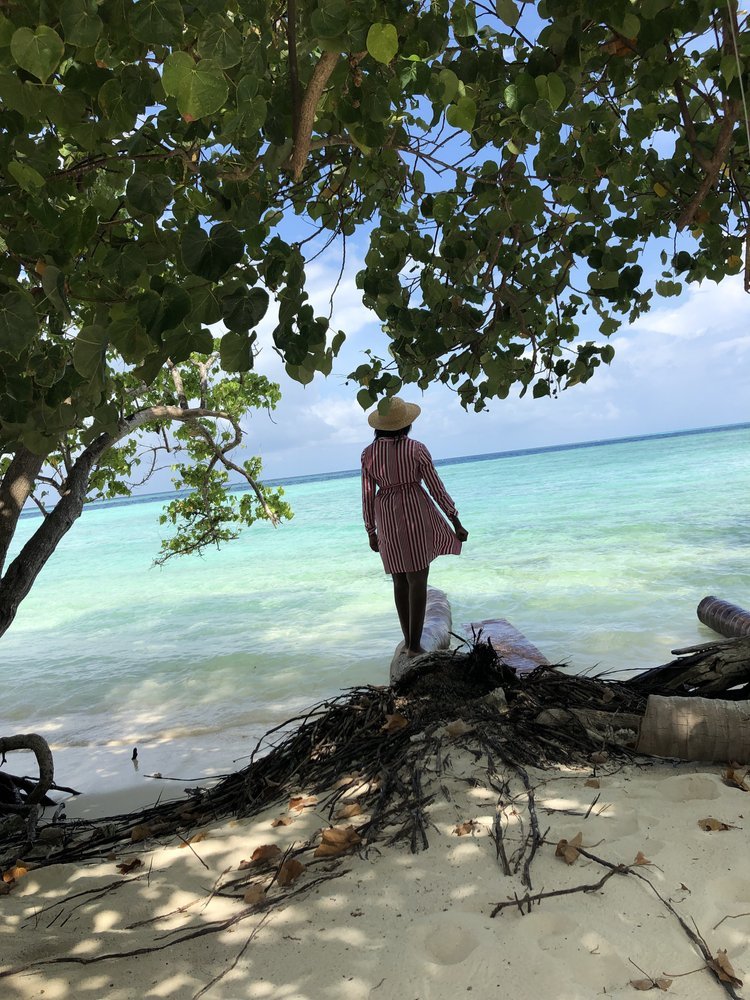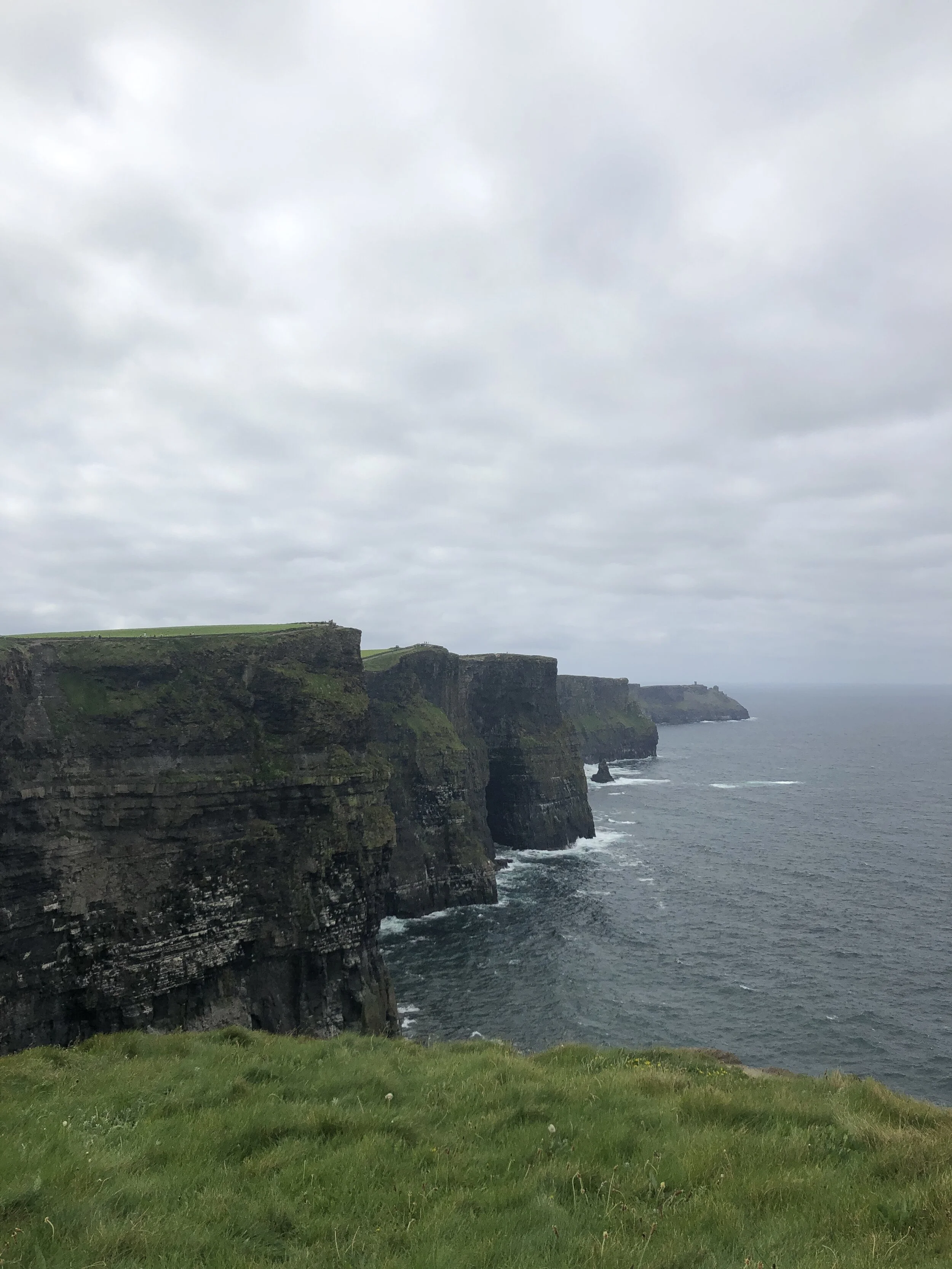My trip to Dublin and Ireland will be one of those trips I carry with me forever. Ireland is an incredibly beautiful country. If you get a chance to visit, don't limit yourself to Dublin; that will be a great disservice. I did not have nearly enough time to explore Dublin or Ireland and will love to visit again in the future. My time in Ireland started in Dublin. Here is everything you need to know to help you plan your Dublin trip.
Visa Requirement. Although Ireland is in the EU, you require a separate visa to visit Ireland if you have a travel limiting passport. The visa process is relatively straightforward. I applied to the London consulate with a completed application form, passport photograph, and visa fees. I have a Nigerian passport, and I applied for a multiple entry Visa. However, I was advised at the consulate to apply for a single entry since I was only going to be getting a three-month visa. The visa process took three weeks; I was given a date and time for pick up; I could pick up with my confirmation slip three weeks from my appointment date.
Arriving in Ireland. The immigration agent at Dublin International airport requested additional documentation, including my bank account balance, length of trip, and copies of the hotel's confirmation and any tours scheduled. This was not information that was listed anywhere. Still, thanks to a lifetime of getting Visas, I always have printed out hotel reservations, tours, and transport on hand just in case immigration officers asked for it.
Where to stay. This is an area of regret in my planning; I stayed at the 12th Lock hotel in Blanchardstown, a lovely hotel. I hoped to save money, staying in a suburb of Dublin to save money. However, with the added transportation costs, including uber fare to get to my tour pick up point early because the trains did not start running until 8 am that weekend. I ended up spending about the same as if I had had hotel reservations heart of the city. While I loved the quiet of Blanchardstown, I would opt to stay in Dublin on subsequent visits.
Getting around. I stayed outside of Dublin and relied on Uber to get from the airport to accommodations. On my last day, I dropped off my luggage at the b Tourism office in the city center while exploring the city. I took the airport shuttle, which was very easy to locate and affordable. The luggage hold cost 7 euros for the day. Besides taking the national train into Dublin, I relied on the trams or walking to get around the city once in Dublin. There were ticket machines by the trams to purchase tickets for the tram.
How many days do you need? If you only intend to visit Dublin, then a weekend should be sufficient. However, if you are looking to maximize your Visa and explore other parts of Ireland, and you have time to spare, consider 10 to 14 days. I spent four days exploring Ireland and packed a whole lot into those four days that I was exhausted by the time I left. I covered a lot of ground by relying on Tour Companies to get around. I used Wild Rover tour Company, and they were phenomenal. If you are considering using a tour company in Ireland, I highly recommend them.
Where to eat and drink in Dublin. I cannot say enough great things about Dublin's food scene; I had the most incredible meals. I got more recommendations about where to eat and drink than the number of days in the city. I had Brunch at Brother Hubbard (North) and treated myself to an espresso martini and the eggs baba-Bida; Drinks at the Temple bar (just because); donuts from Rollings; Traditional Irish food at the Boxty House restaurant (the best potato pancakes); the best chicken wings at the Celt pub and a cold Guinness at confession box. I know you can get Guinness just about anywhere in Dublin, but even locales swell the Guinness at the confession box is in a class by itself.
What to do in Dublin. It may sound cliche, but you have to visit Temple Bar, have a pint, and sing along with other tourists. I thoroughly enjoyed this part of my visit; I visited pre-COVID, so the bar and the area around it were packed. Explore Trinity college campus; the oldest and most notable college in Ireland with alumni like Oscar Wilde; explore the grounds; visit the old library to see Kells' book. Seeing the book of Kells is a popular attraction, so the queues are long; if you can make a booking online - do that to save yourself some time. A tour of the Guinness storehouse (I did not visit but heard good things from others, especially if you enjoy how things are made. If you prefer whiskey, the Jameson distillery is another highly recommended stop. Explore the museums; some highly rated ones include the Irish Emigration Museum, the National Leprechaun Museum of Ireland, and Writers museum. Shopping on Henry street (on the Northside) and Grafton street; both are great spots for street art; people watch, street performances, and picking up souvenirs. Don't miss the Ha'Penny bridge, which connects the north and south sides of the city. What fascinated me about this spot is its history, including the fact that it has been standing since the 1800s. The Dublin Castle and surrounding areas and gardens are must-see; it cost about 5 euro for entry, and you can opt for a tour guide. Just a note, while it is called a castle, it functions as government offices these days. The Dubh Linn Garden just around the corner from the castle is stunning place to away from the noise of the city. Absolutely loved the structure as a fan of architecture, but the hidden gardens were spectacular. Finally, suppose you intend to visit for longer than a weekend. In that case, you should consider getting out of Dublin to explore other parts of Ireland. There are several day trip options, including Galway, Cliffs of Moher; Burren National Park; Kilkenny, Wicklow Mountains and Glendalough.























